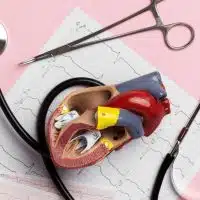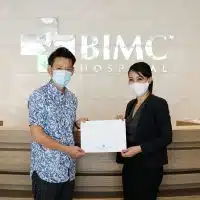
Embarking on a journey to explore new destinations is an exhilarating experience. However, meticulous pre-travel preparations are essential to ensure a safe and enjoyable trip. This comprehensive guide outlines crucial steps to take before your departure, covering health precautions, documentation, financial readiness, and more.
1. Health Preparations
Consult a Travel Medicine Specialist
Before traveling abroad, schedule a consultation with a travel medicine specialist. This step is vital as it provides personalized advice based on your health status, destination-specific risks, and itinerary. A specialist will assess your medical history, current medications, and any pre-existing conditions to tailor recommendations accordingly.
Vaccinations and Immunizations
Ensuring you’re up-to-date on routine vaccinations is fundamental. Depending on your destination, additional vaccines may be necessary:
- Hepatitis A and B: Recommended for travelers to regions with intermediate to high levels of these viruses.
- Typhoid: Advised for those visiting areas where typhoid fever is prevalent, especially if you’re staying with locals or visiting smaller cities or rural areas.
- Yellow Fever: Mandatory for entry into certain countries in Africa and South America. Ensure you carry an International Certificate of Vaccination as proof.
- Japanese Encephalitis: Suggested for extended stays in rural parts of Asia, particularly during transmission seasons.
- Influenza: Recommended for all travelers, especially during flu season or when visiting areas with ongoing outbreaks. Consider timing your vaccination appropriately before departure.
- Meningitis: Required for pilgrims traveling to Saudi Arabia for Hajj or Umrah and recommended for travelers to areas experiencing meningitis outbreaks, particularly in sub-Saharan Africa during the dry season.
It’s advisable to receive vaccinations 4 to 8 weeks prior to departure to allow immunity to develop fully.
Malaria Prevention
If you’re traveling to malaria-endemic regions, discuss prophylactic antimalarial medications with your healthcare provider. Additionally, adopt preventive measures such as using insect repellent, sleeping under mosquito nets, and wearing long-sleeved clothing during peak mosquito activity hours.
Traveler’s Diarrhea
Traveler’s diarrhea is a common ailment among international travelers. To mitigate risks:
- Food and Water Safety: Avoid consuming raw fruits and vegetables unless you can peel them yourself. Steer clear of undercooked meats, unpasteurized dairy products, and food from street vendors. Drink only bottled or purified water, and use it for brushing your teeth.
- Medications: Carry antibiotics prescribed by your doctor to treat severe cases of diarrhea, along with oral rehydration salts to prevent dehydration.
2. Documentation and Legalities
Passports and Visas
Verify that your passport is valid for at least six months beyond your intended return date, as some countries enforce this requirement. Research visa requirements for your destination and apply well in advance to avoid last-minute complications.
Health Insurance
Confirm that your health insurance provides coverage overseas. If not, consider purchasing travel insurance that includes medical coverage, ensuring it covers emergency evacuations and treatment for illnesses or injuries sustained abroad.
International Driving Permit (IDP)
If you plan to drive in a foreign country, check whether an International Driving Permit is required. Obtaining an IDP before departure can prevent legal issues and ease car rental processes.
3. Financial Preparations
Notify Financial Institutions
Inform your bank and credit card companies of your travel plans to prevent them from flagging or freezing your accounts due to unusual activity. This step ensures uninterrupted access to your funds while abroad.
Carry Multiple Payment Methods
Diversify your financial options by carrying a mix of credit cards, debit cards, and sufficient local currency. Having multiple payment methods safeguards against unforeseen issues like card malfunctions or limited acceptance of certain cards.
4. Packing Essentials
Medication and First Aid
Pack an ample supply of any prescription medications, along with copies of the prescriptions. Include a basic first aid kit containing items like band-aids, antiseptic wipes, pain relievers, and any other essentials pertinent to your health needs.
Clothing and Gear
Research the climate and cultural norms of your destination to pack appropriate attire. Consider versatile clothing that can be layered to accommodate varying weather conditions.
Travel Documents
Make photocopies of important documents, such as your passport, visa, travel insurance, and itinerary. Store these copies separately from the originals and consider keeping digital copies accessible through secure cloud storage.
5. Safety Measures
Emergency Contacts
Compile a list of emergency contacts, including local emergency services, the nearest embassy or consulate, and personal contacts back home. Keep this list easily accessible during your travels.
Local Laws and Customs
Educate yourself about the local laws, customs, and etiquette of your destination. Understanding cultural norms not only shows respect but also helps you avoid unintentional offenses that could lead to legal issues.
6. Technological Preparations
Mobile Connectivity
Check with your mobile service provider about international roaming options. Alternatively, consider purchasing a local SIM card upon arrival to ensure affordable communication. You can also connect with Wi-Fi in the area.
Digital Security
Safeguard your digital devices by updating software, using strong passwords, and enabling two-factor authentication where possible. Be cautious when using public Wi-Fi networks; utilizing a Virtual Private Network (VPN) can add an extra layer of security.
7. Transportation and Accommodation
Confirm Reservations
Double-check all reservations, including flights, accommodations, and any pre-booked activities or tours. Having printed and digital copies of confirmations can be helpful in case of discrepancies.
Transportation Arrangements
Research transportation options at your destination, such as public transit systems, ride-sharing services, and car rentals. Familiarizing yourself with local transport can help avoid confusion upon arrival.
Conclusion
Proper pre-travel preparations can make the difference between a smooth, enjoyable trip and an unnecessarily stressful experience. By ensuring your health, finances, documentation, and safety are in order, you can focus on making the most of your journey.
Planning an international trip? Ensure a hassle-free journey with expert medical consultation. Book your pre-travel and post-travel health check-up today at BIMC Nusa Dua for personalized advice on vaccinations, travel medications, and health precautions.
Beyond consultation services, BIMC Nusa Dua provides round-the-clock medical support to ensure peace of mind throughout your travels. Our comprehensive services include 24/7 emergency contact through 3001122 for immediate medical assistance, doctor on call services for urgent medical needs, and medical home service that brings convenient healthcare directly to your location.











